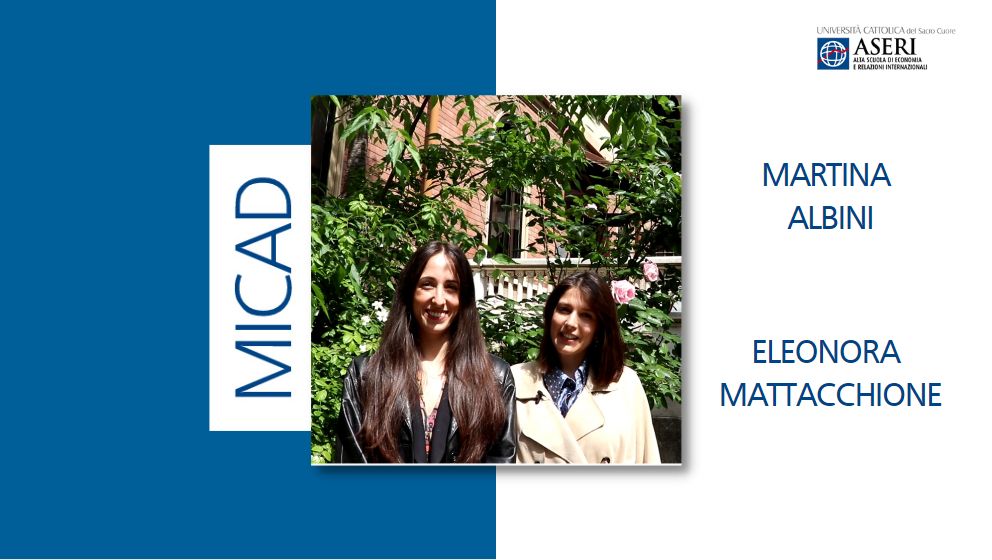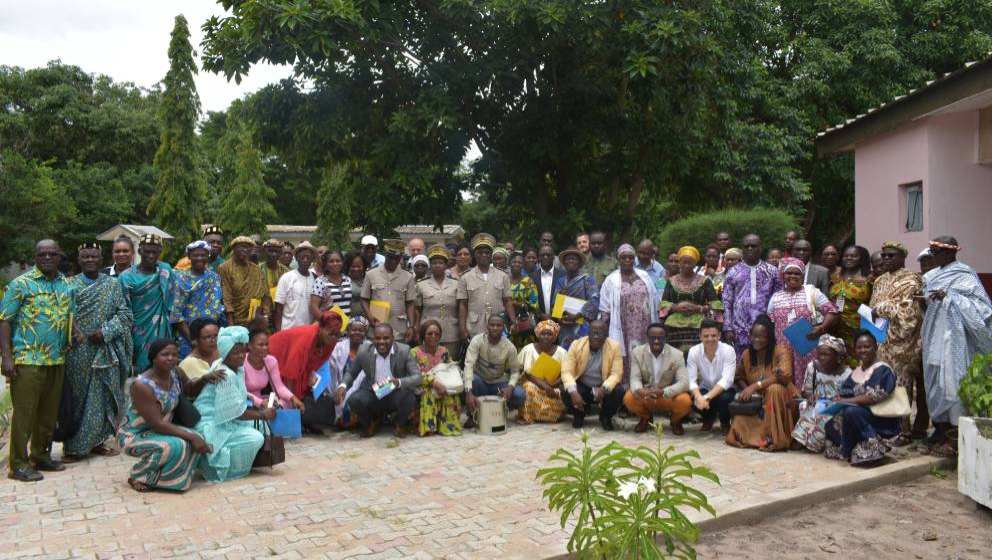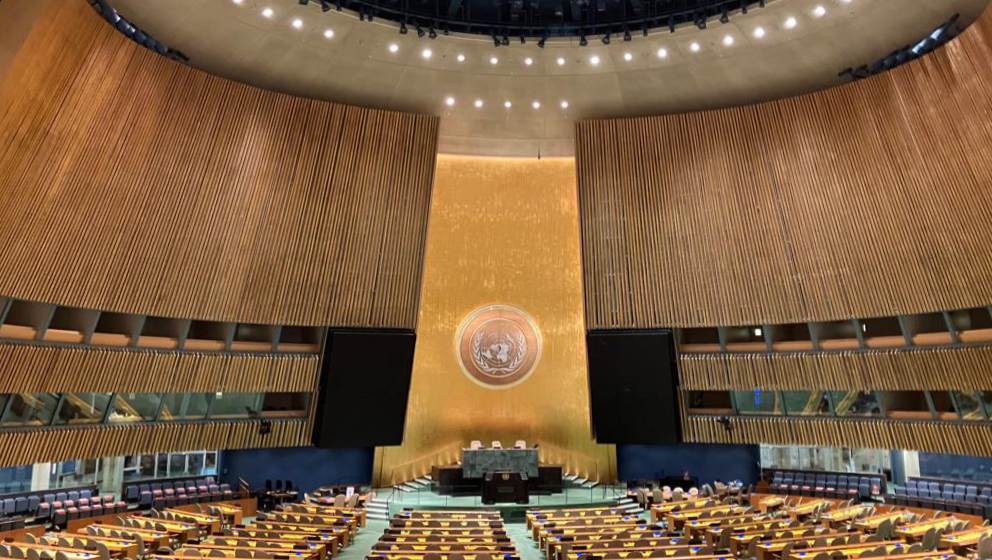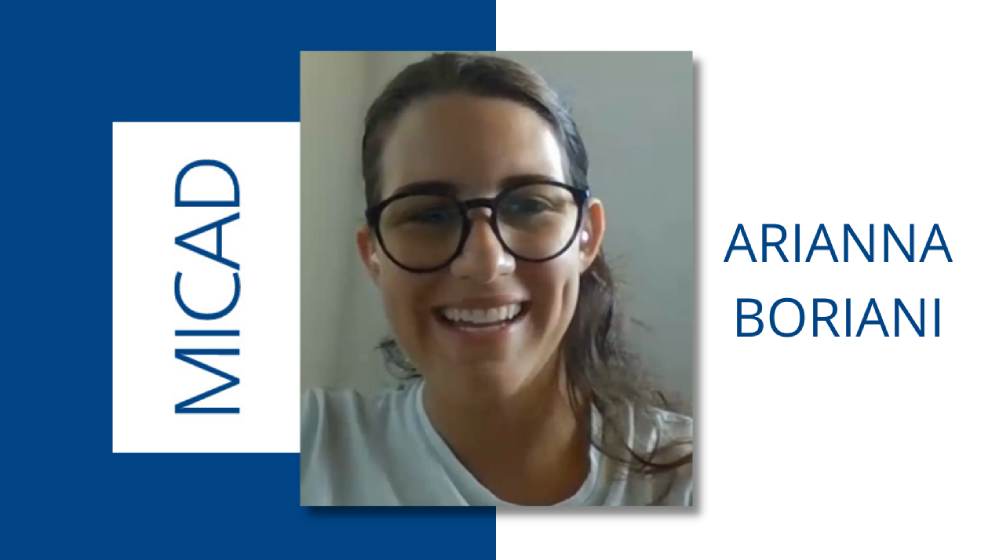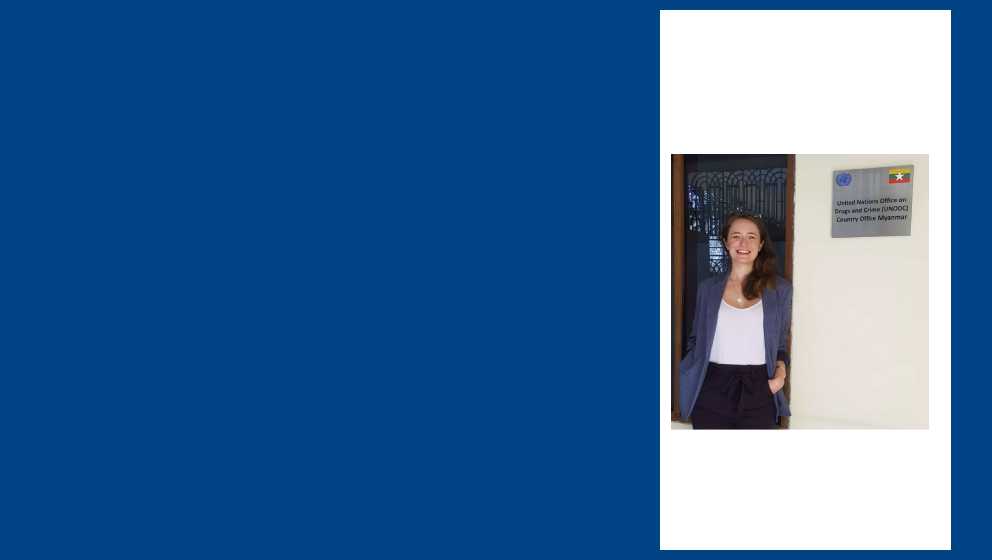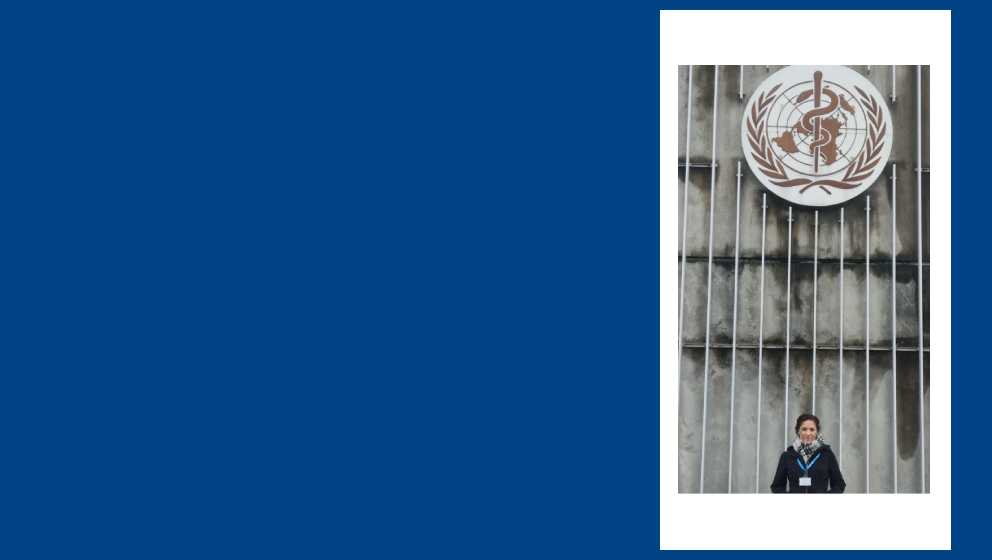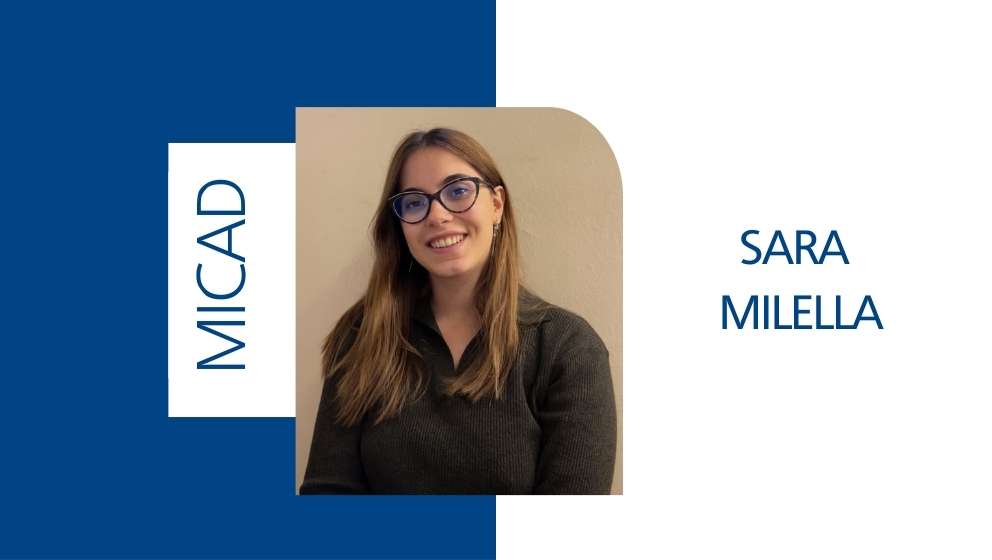
MICAD ALUMNI
Sara Milella, Universal Civil Service - Distance Support Project, Fondazione AVSI, Milan
«I would like to work in development and war context, so I think I’ll use every concept I learnt in my job. There might be some courses that are less useful than others. Focus more on the most relevant courses, even if it means to extend the lecture until the end of June. It was a really good experience, in which I met wonderful people from every part of the world, and I learnt a lot. It might be useful to help more the students in finding internship, through collaboration with some NGOs».


